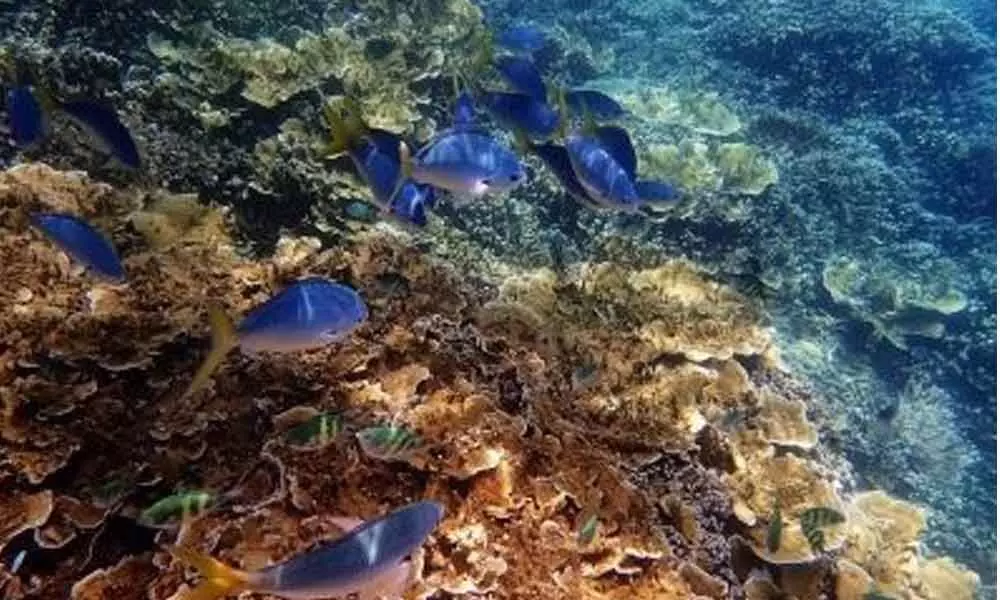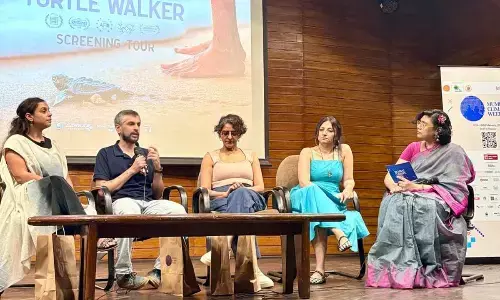Australia and China spar over the Great Barrier Reef

Australia and China spar over the Great Barrier Reef
Australia and China are at it again. After coronavirus origins and a trade war, the two are now locked over the health of the Great Barrier Reef (GBR).
Australia and China are at it again. After coronavirus origins and a trade war, the two are now locked over the health of the Great Barrier Reef (GBR).
A UNESCO World Heritage Committee has said that the Great Barrier Reef has deteriorated so much that it should be listed as a world heritage site "in danger." The committee also said that climate change is the main reason for the deterioration in the health of the world's largest coral reef.
The committee called upon Australia to "urgently" address threats to the GBR--an extensive and varied coral reef ecosystem. Australia has not taken kindly to the comments over the GBR.
Australian Minister for Environment, Sussan Ley said the government will "strongly oppose" the recommendation as the country is investing US $3 billion in reef protection. In a statement she said: "The Great Barrier Reef is the best managed reef in the world and this draft recommendation has been made without examining the reef first hand, and without the latest information". Such was the reaction in the country that Australian Foreign Minister Marise Payne spoke with UNESCO Director-General on Monday evening to voice her country's "strong disappointment" and "bewilderment" at the move.
Australia feels that the decision by the 21-nation World Heritage Committee, which is chaired by China, is biased. The country plans to contest the decision. India Narrative spoke with Dr Anjal Prakash, Research Director and Adjunct Associate Professor at the Indian School of Business. He was the coordinating lead author of the IPCC's Special Report on Oceans and Cryosphere (SROCC) report and is presently associated with the IPCC's 6th assessment report.
Dr Prakash says: "The SROCC published in 2019 gives us a latest account of what is happening to the reefs around the world. Scientists associated with the report, informed with very high confidence that marine heatwaves have resulted in large-scale coral bleaching events and its frequency has increased over the years. This has caused worldwide reef degradation since 1997."
He adds that monitoring of coral reefs had shown that in some areas such as the Great Barrier Reef, Australia, it had recovered more rapidly after bleaching than the larger-scale average. "Australian scientists have also been assessing the impact of climate change on human cultures and well-being within the Great Barrier Reef region.
They found, as quoted in SROCC report, that increased temperatures, cyclones and sea level rise had degraded the quality of the Reef which has cultural impacts for the people in the region", Dr Prakash says.
However, he adds that almost all warm-water coral reefs are projected to suffer significant losses of area and local extinctions, even if global warming is limited to 1.5 degrees Celsius. As a site of natural heritage, UNESCO describes the GBR as: "a site of remarkable variety and beauty on the north-east coast of Australia.
It contains the world's largest collection of coral reefs, with 400 types of coral, 1,500 species of fish and 4,000 types of mollusc. It also holds great scientific interest as the habitat of species such as the dugong (esea cow') and the large green turtle, which are threatened with extinction".
A CNN report says "the GBR contributes $4.8 billion annually to Australia's economy and supports 64,000 jobs. But the reef's long-term survival has come into question. It has suffered from three devastating mass bleaching events since 2015, caused by above-average ocean temperatures as the burning of fossil fuels heats up the planet."
The GBR has been in the news since the IPCC's 2019 assessment.
Besides the GBR, UNESCO has highlighted danger to 52 other sites--both man-made and environmental. It is a warning signal to countries and governments to begin taking care of their heritage. If governments are unable to restore their heritage sites, UNESCO has the powers to withdraw the coveted heritage tag.
For Australia, the UNESCO committee wants Australia to mitigate climate change and improve water quality.
(This content is being carried under an arrangement with indianarrative.com)









